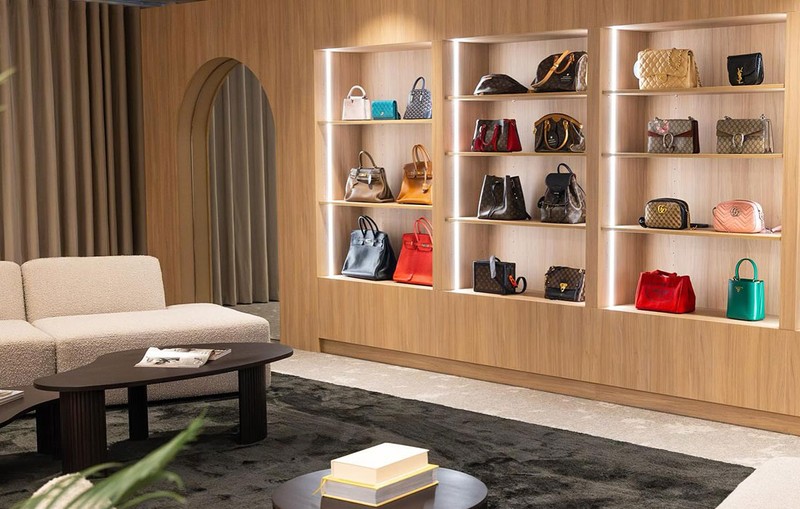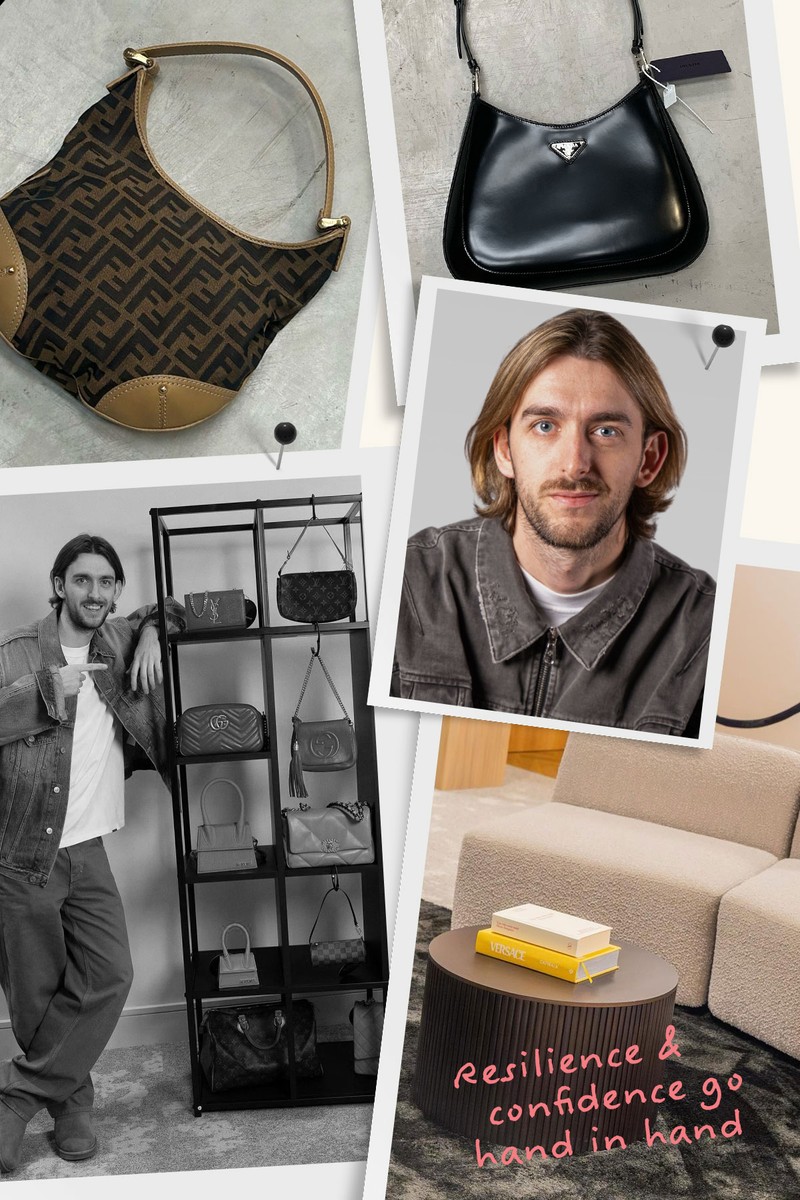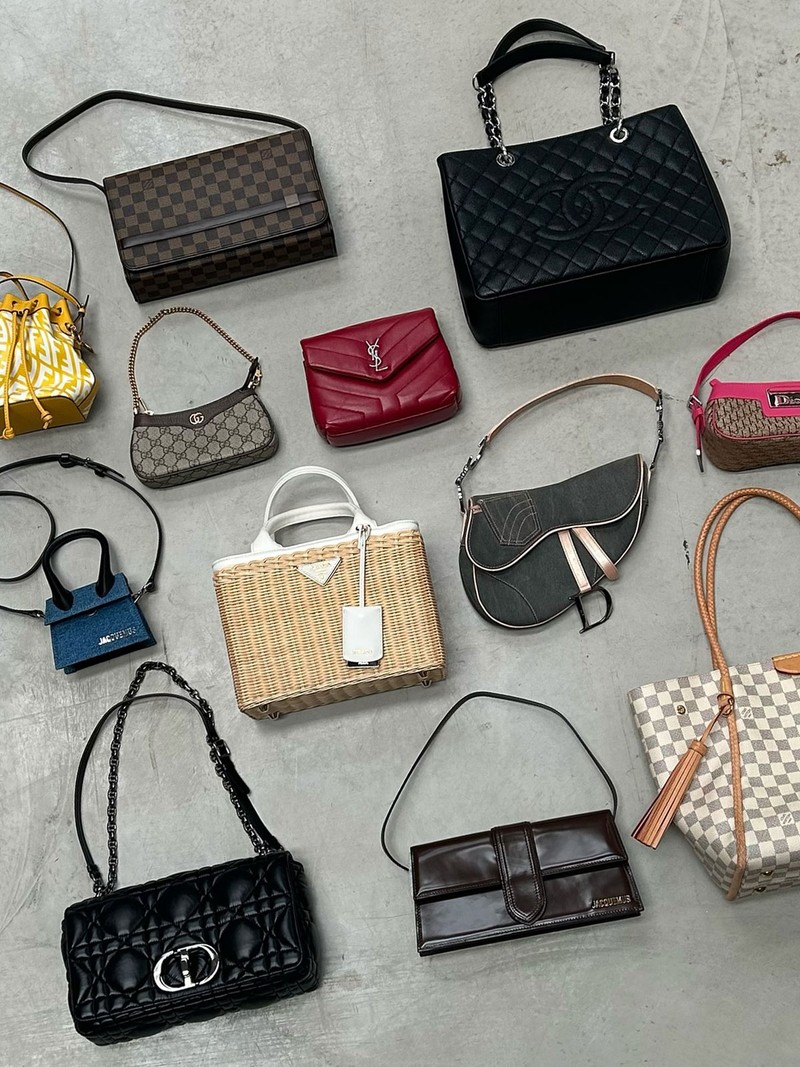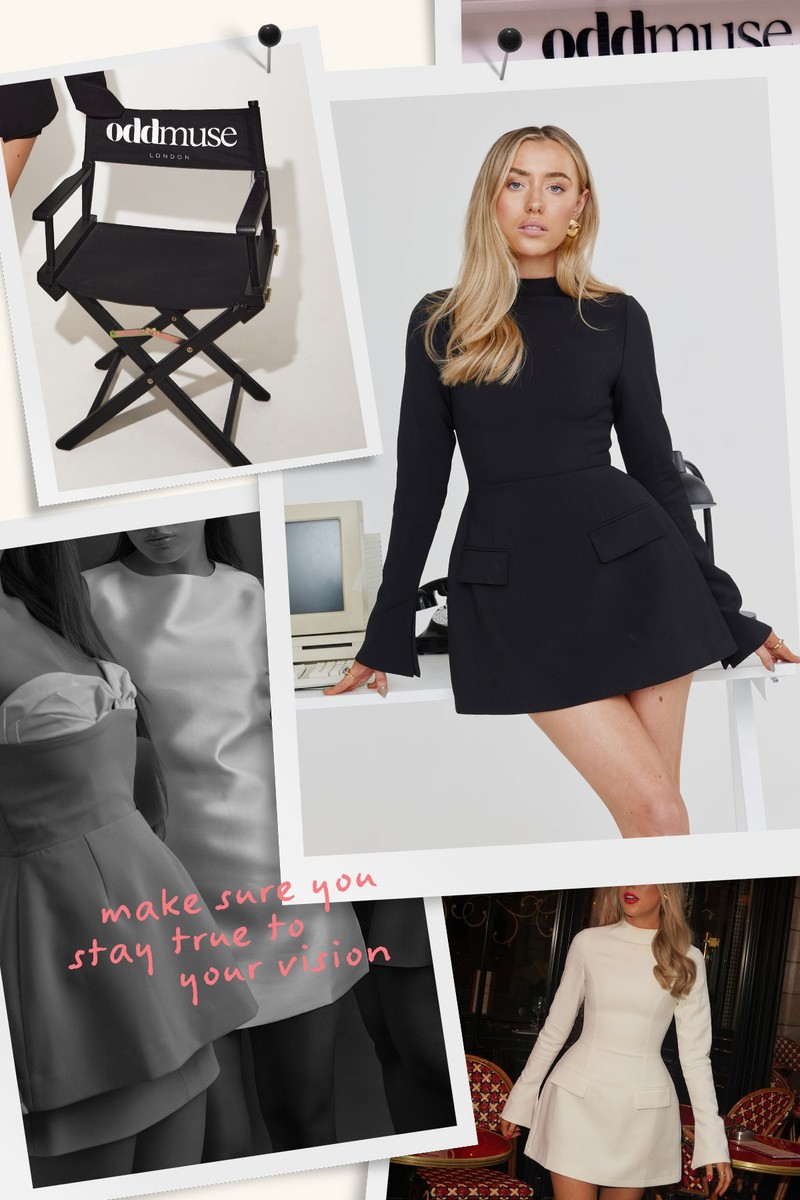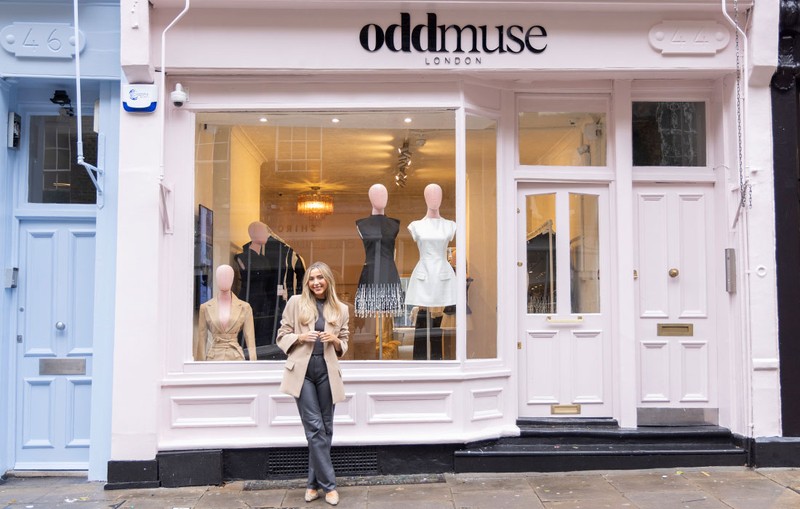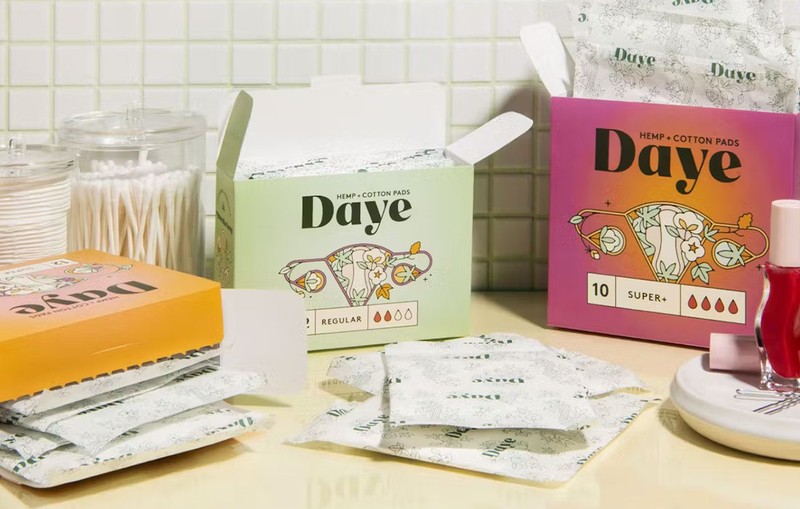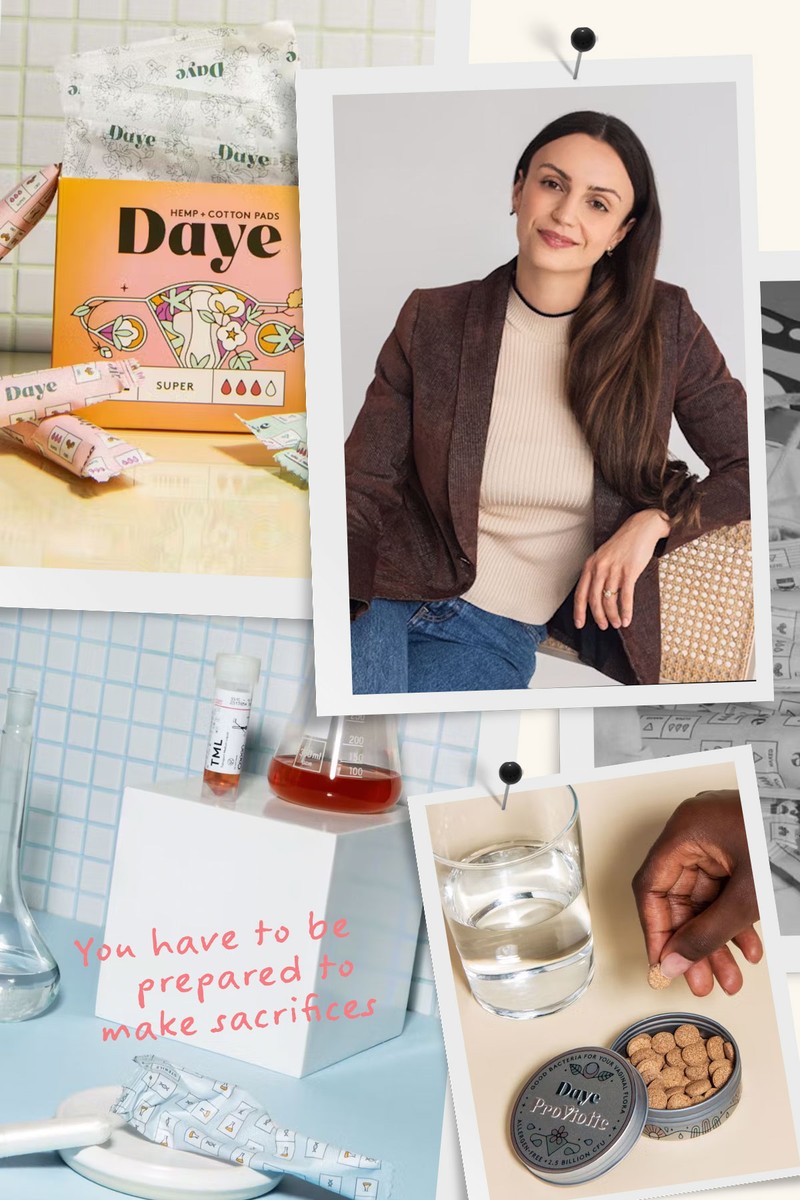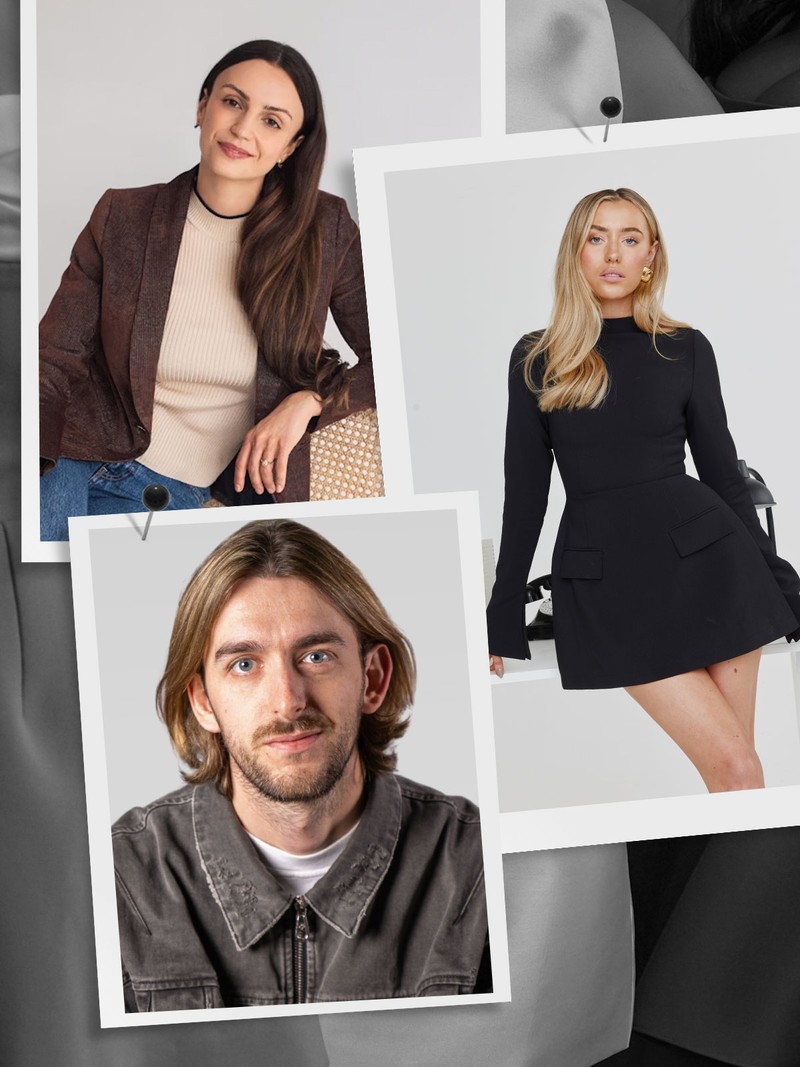
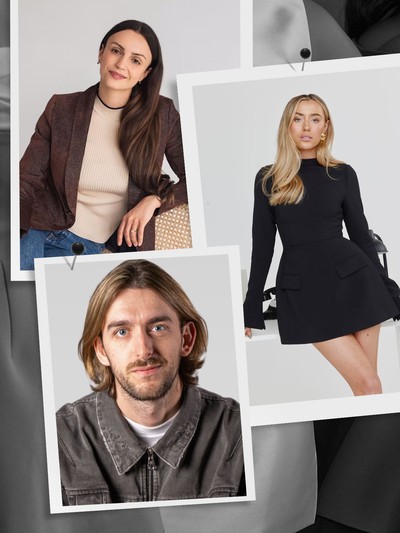
3 CEOs Under 30 Share Their Tips For Success
Ben Gallaga
LUXE COLLECTIVE
At 17, Ben Gallaga skipped university to dive straight into the world of luxury resale, launching Luxe Collective with his brother using just £1,200. Fast forward six years and the platform’s mix of sustainability and accessibility has earned the duo nearly two million followers, a spot on Dragon's Den, and invites to major fashion events like Valentino's Milan runway show.
Do things that scare you. When we went on Dragon's Den, standing in front of those multi-millionaires, it really pushed us to dissect our business. The high-pressure environment forced us to know every detail, never miss a beat, and develop personally and professionally. Getting out of your comfort zone is key for every young entrepreneur.
Learn to delegate. I'm not a numbers guy so managing cash flow has been challenging. My brother, who co-founded the business with me, handles that side of things and I wouldn't be here without him. Self-awareness is so important – you have to know and focus on your strengths. Over time, I've stepped back from the traditional CEO role to focus on what I'm good at, and I trust my team to handle the rest.
Stay tuned in. Fashion moves fast, and as a CEO you need to be adaptable. Social media is all about performance, with new initiatives and strategies popping up every day. I have a fast-paced mindset and 'shiny object’ syndrome, which works well for both the fashion world and the constantly evolving marketing landscape. It's about staying agile, seizing opportunities and adjusting quickly to boost engagement and stay ahead.
Don’t panic. When we had a £500,000 stock robbery, staying calm was hard but necessary. As a leader, if you panic, your team will too. You can't change what's happened, but you can control how you respond. Staying positive and focused is the way to turn a setback into a stepping stone.
Throw stuff at the wall and see what sticks. In younger companies, speed and experimentation are critical. Take TikTok Shop – we jumped in, ran a 30-day testing phase with five-hour daily sessions, and hired a team to scale it. Now, it has generated £1.5m in six months, and runs smoothly without my direct involvement. As a start-up, you need to find fast, cost-effective ways to grab users’ attention. Traditional marketing can drain your budget, but platforms like TikTok let you reach millions for free. Being open to trying new things gives you an edge over slower competitors.
Work on resilience and confidence. The two go hand in hand. To truly master something, you need to embrace failure and push past the fear of looking foolish. Whether it’s experimenting with TikTok or trying a new marketing strategy, you'll inevitably face setbacks. But confidence builds with each attempt – if you haven't tried a hundred times, it's no wonder you're still unsure. Keep practising, stay resilient and your confidence will grow as you learn.
Understand your business model. It's easy to get caught up in growth, but rushing can expose weaknesses. We learned that the hard way – hiring 42 people too quickly this year. While I don't regret any hires, the rapid pace highlighted my struggles with managing people. Growth should be gradual, and we moved too fast. Take your time and build carefully.
Aimee Smale
ODD MUSE
Odd Muse founder Aimee Smale is a former ASOS buyer who turned her retail know-how into a thriving luxury womenswear brand – which she launched amid the pandemic and economic uncertainty of 2020 – that encourages customers to break the fast fashion cycle.
Take risks. Being 22 and a bit naïve worked in my favour. In 2020, when the economy was at its worst, no one was starting businesses. But I saw it as an opportunity to stand out. Instead of jumping on quick trends, I focused on timeless pieces that people would be excited to wear when they could finally go out again. That's how our blazer became a bestseller. It's a product that lives up to the business’s broader mission: classic, long-lasting and always relevant.
Use what you know. My experience in buying gave me a deep understanding of how the business works, which helped me scale quickly. I knew the ins and outs – how to chase stock, liaise with suppliers and meet demand. When 700 people were waiting for a blazer, I knew how to negotiate with suppliers to meet that demand. This hands-on knowledge has been key to growing the business.
Recognise that you are your 'USP'. A big part of our marketing is 'yapping' on TikTok and showing the real face of Odd Muse. The buzz around us hasn't slowed since our first viral moment, and that's by design. I'm always thinking about how to keep that momentum alive. This sets us apart from competitors – we're relatable, and customers connect with the person behind the brand. When you're up against established brands, you can't match their marketing budgets, but you do have one powerful asset: you. No one else has your unique personality and vision, and that's what makes you and your brand stand out.
Embrace the snowball effect. When our first blazer sold out, it felt like winning The X Factor. What started as a goal to match my ASOS wage and get a few social media tags quickly snowballed, with each win fuelling the next. Growth never stops – from London Fashion Week to our New York pop-up, every step builds momentum, driving more brand awareness and pushing us to keep growing faster. You have to plan for the snowball though, anticipate the next steps and leverage every win to keep that momentum going.
Be gritty. Over the years, resilience has been key. There were so many times I could have pulled back or skipped projects to make things easier. But in business, it's all about pushing those boundaries – putting out fires every day, and as you grow, so do the challenges. The problems I faced last year feel small compared to this year's, but that's just part of scaling up.
Know your brand DNA inside out. If we're in a fit meeting and anyone says, "That doesn't feel like Odd Muse," it doesn't make it to production. Every piece has to be unmistakably us – if it doesn't scream Odd Muse, it's out. We're obsessed with keeping our brand identity clear and strong, and that attention to detail is what makes every product so authentic to our style. Make sure you stay true to your vision.
Visit ODDMUSE.CO.UK
Valentina Milanova
Daye
Since Valentina Milanova launches Daye in 2018, the menstrual care brand has introduced everything from cramp-relieving, CBD-infused tampons to diagnostic tampons that help users monitor vaginal health at home. To this day, she’s on a mission to break taboos and challenge the status quo in women's healthcare – a sector that receives less than 2.4% of public health funding.
Identify a problem, then solve it. Daye focuses on addressing the gender pain gap – the tendency to downplay female pain, from menstrual pain to painful procedures like IUD insertions. That's why we developed the world's first pain-relieving tampon and a dedicated clinic for period and pelvic pain. Another challenge is the gender diagnostic gap, where women face delays in diagnosis for over 700 conditions, often due to outdated, invasive tools like the speculum – which was first invented during the times of the Roman Empire – which deters many from having gynaecological exams. Daye's diagnostic tampon offers a pain-free, shame-free alternative that people can use at home.
Prepare for adversity. Getting Daye's products to market wasn't easy. We tackled clinical trials, regulatory hurdles and fought the tampon manufacturing monopoly by bringing production in-house and setting up our own factory. Now, commercialisation is the biggest challenge, especially after the overturning of Roe vs Wade in the US. Women's health companies face bans on platforms like Amazon, Google and Meta, where our products are wrongly categorised as 'adult content' or restricted. We're currently challenging Google's decision to classify our diagnostic tampons as contraception – despite no one ever using a tampon this way. You have to be prepared to fight.
Don't expect it to be glamorous. Entrepreneurship isn't about big wins and accolades – it's a relentless grind, emotionally, physically and mentally. I've seen friends chase business for the 'opportunity' or prestige, but no one warned me about the toll it takes. You have to be prepared to make sacrifices. For me, being honest about the true challenges of entrepreneurship is essential.
Find more than one mentor – having diverse perspectives helps you find the right path. A single mentor can sometimes become too close, even unhelpful. That's why I make time to support multiple other founders, especially women. A few minutes of advice can save someone months of trial and error. So, I spend a lot of time on calls helping entrepreneurs work through their challenges – just like others did for me. And I always encourage people to reach out – asking for help is part of growth.
Reach out cold – don't wait for a warm introduction. A well-crafted LinkedIn message with specific questions can be surprisingly effective. Most people enjoy giving advice and are happy to help. If you don't have an existing network before you start, LinkedIn is your best tool. It's how I've connected with people for funding and business development.
Lead by example. As the founder, you're setting the tone for your company culture. I'm all about transparency. At Daye, everyone has access to key business information – from revenue to pay structures – so they can make informed, independent decisions and top-down controls don’t hold them back. I believe in a meritocracy where ideas – not titles or backgrounds – drive decisions. I know value isn't tied to academic resumés. This approach lets every team member shine based on merit, not background.
Visit YOURDAYE.COM
DISCLAIMER: We endeavour to always credit the correct original source of every image we use. If you think a credit may be incorrect, please contact us at info@sheerluxe.com.
